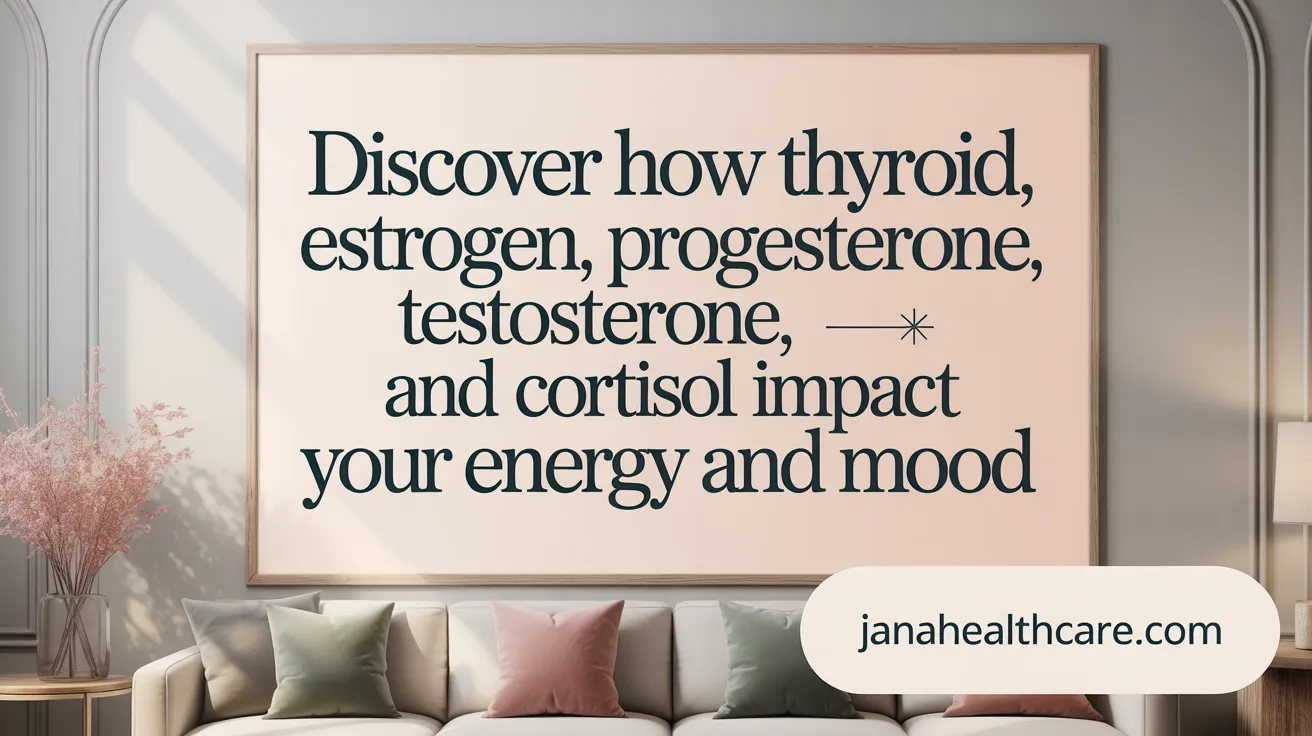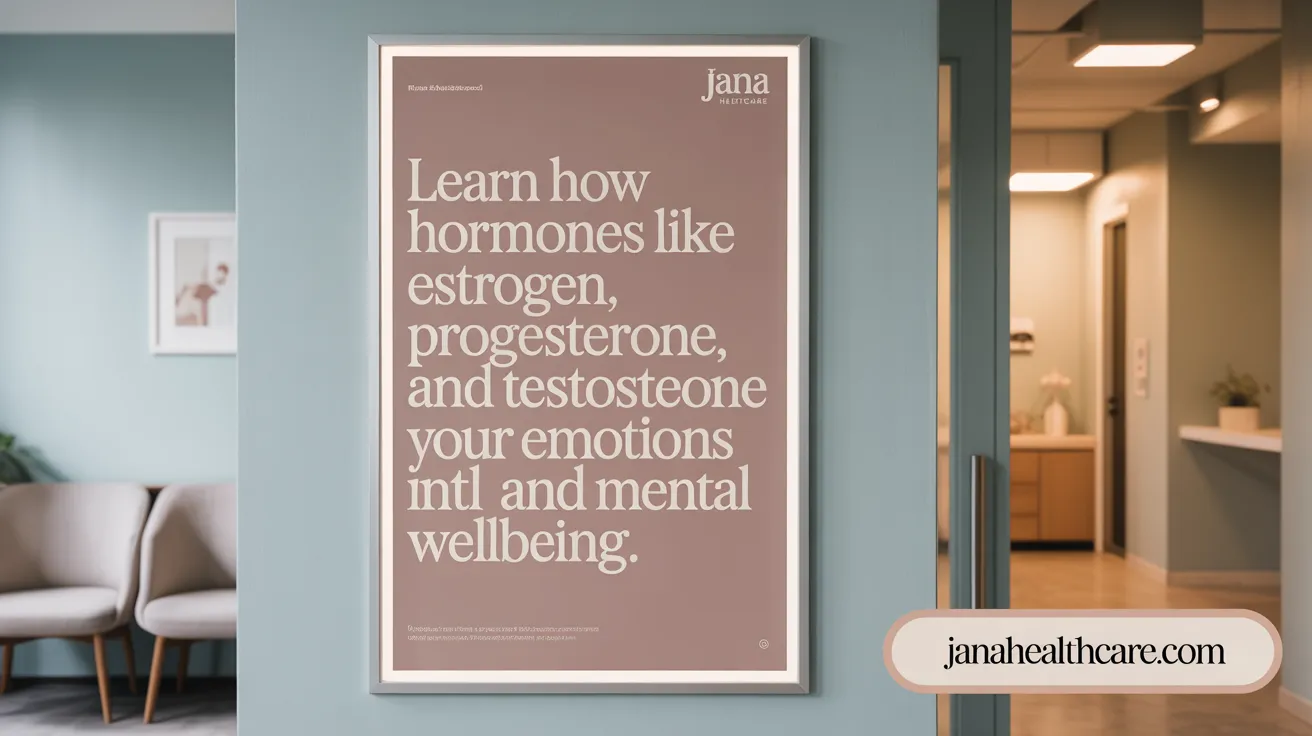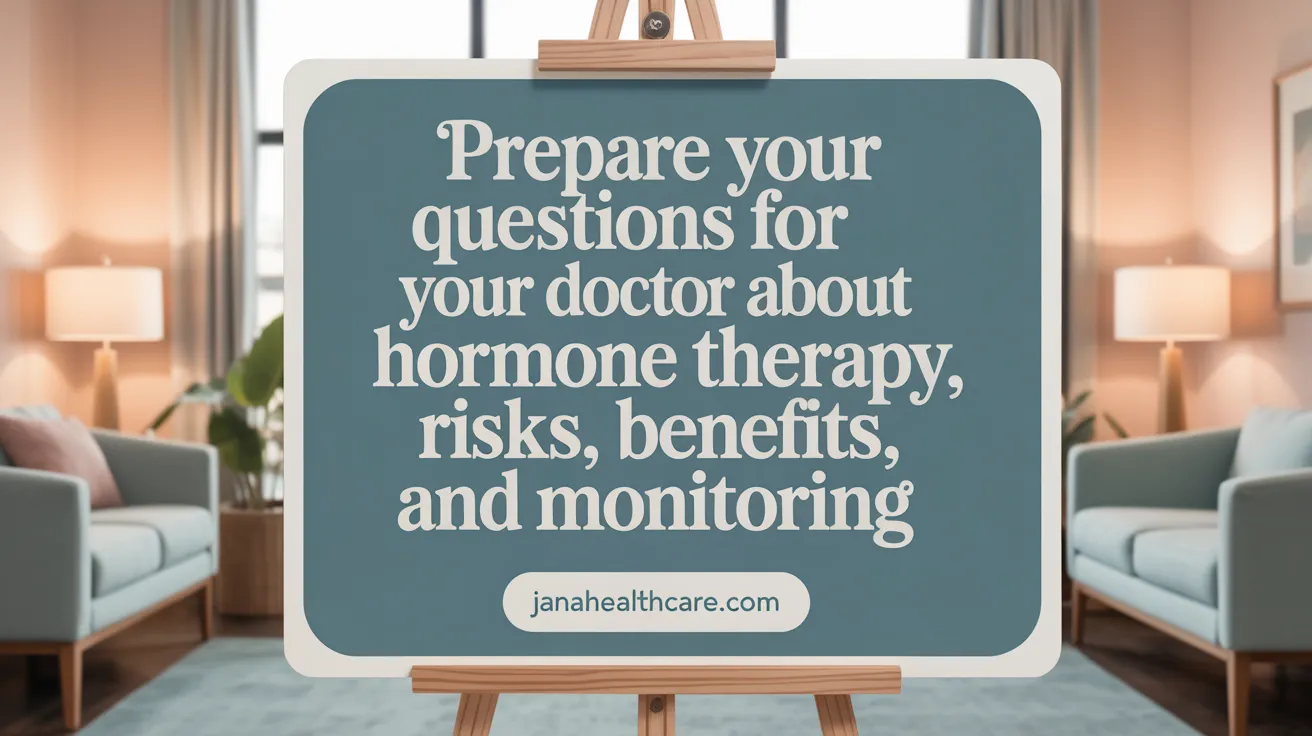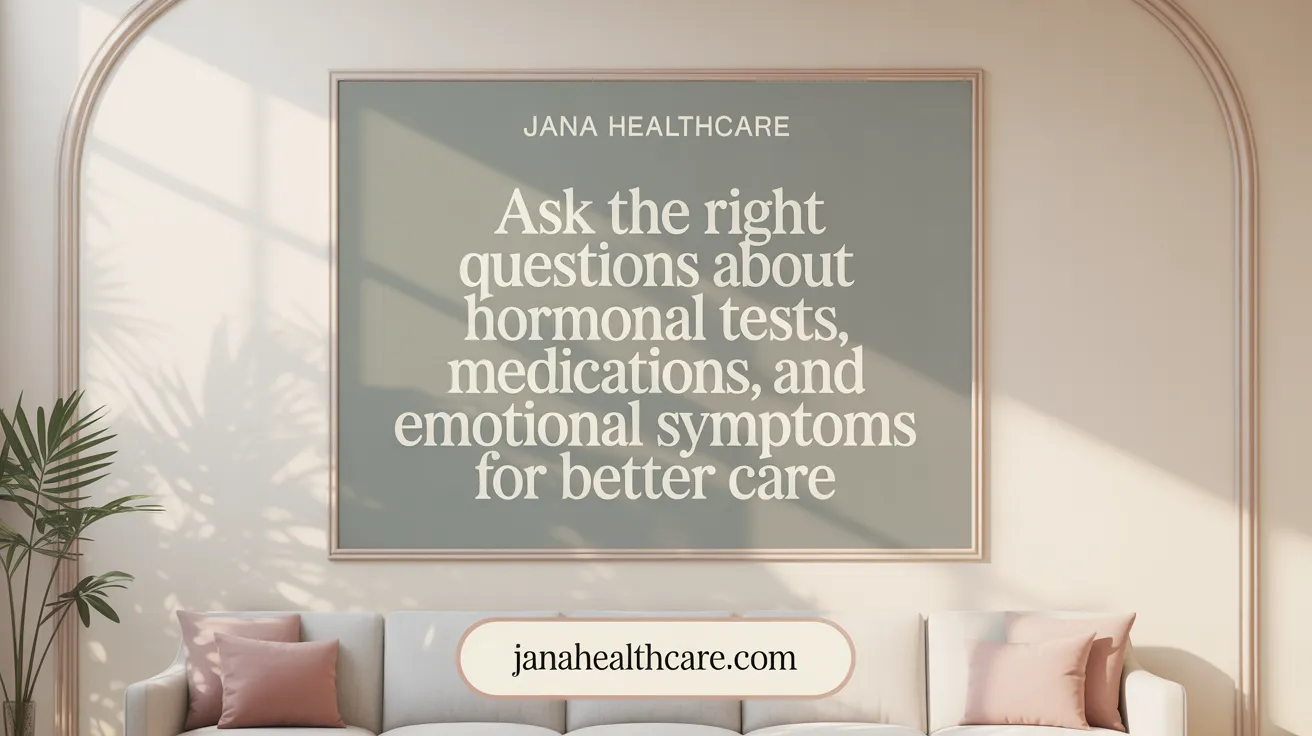Understanding the Hormone-Energy-Mood Connection
Basic Hormone Functions
Hormones are chemical messengers produced by glands in the endocrine system, including the thyroid, adrenal, and gonadal glands. They regulate vital bodily processes like metabolism, mood, energy levels, and reproduction. Through specific receptors on target cells, hormones trigger actions that maintain balance and overall health.
Relationship Between Hormones, Energy, and Mood
Hormones such as estrogen, progesterone, testosterone, thyroid hormones, and cortisol play critical roles in energy regulation and emotional well-being. Estrogen and progesterone fluctuate during the menstrual cycle, influencing energy swings and mood changes. Low estrogen levels during menopause can lead to fatigue, mood swings, and depression. Thyroid hormones govern metabolism and vitality, so imbalances often cause tiredness and cognitive fog. Cortisol manages stress but chronic elevation may disrupt sleep and mood, heightening anxiety and fatigue.
Importance of Discussing Hormone Health With Your Doctor
Because hormone balance affects multiple aspects of health, it’s essential to work closely with a healthcare provider. Discuss symptoms like fatigue, mood changes, and sleep problems openly. Sharing your complete medical history and medications helps your doctor tailor hormone testing and treatments such as hormone replacement therapy or lifestyle interventions safely. Regular monitoring ensures benefits are maximized while minimizing risks, supporting your journey toward optimal energy and emotional wellness.
Key Hormones That Regulate Your Energy and Mood

How do hormones affect energy levels?
Hormones such as thyroid hormones impact on energy, estrogen, progesterone, testosterone, and cortisol play crucial roles in regulating your energy and emotional wellbeing. Thyroid hormones control metabolism and energy production, so low levels (hypothyroidism fatigue and weight gain) often cause fatigue, weight gain, and brain fog. Elevated cortisol, the stress hormone, when chronically high, can impair sleep, mood, and concentration.
Estrogen and progesterone fluctuate throughout the menstrual cycle, influencing energy and mood. During the follicular phase, rising estrogen promotes increased energy and strength. After ovulation, in the luteal phase, progesterone peaks, often causing tiredness and premenstrual symptoms like mood swings and irritability.
Testosterone, important for both men and women, supports muscle mass, metabolism, and vitality. Low testosterone can result in fatigue and reduced motivation.
Impact of menstrual cycle, menopause, and aging on hormones
Women experience dynamic hormone changes through life stages. In the menstrual cycle, estrogen and progesterone levels rise and fall, affecting energy and mood daily. Menopause marks a decline in estrogen, often leading to fatigue, mood changes, hot flashes, and difficulty concentrating.
Aging affects hormone levels generally; thyroid dysfunction becomes more common, and cortisol regulation may be impaired by chronic stress, contributing to low energy and mood disturbances. Hormonal imbalances at any stage can influence your overall wellbeing.
Supporting hormonal balance through lifestyle—such as balanced nutrition, regular exercise, stress management, and quality sleep—enhances energy and emotional health. Medical evaluation can identify imbalances and guide personalized treatments, including Hormone therapy benefits, if appropriate.
Mood and Hormones: What You Need to Know

What's the connection between hormones and mood?
Sex hormones such as estrogen, progesterone, and testosterone play a vital role in regulating Hormones and emotional well-being. They influence key neurotransmitters like serotonin and dopamine, which are critical for mood stability and feelings of happiness.
How do estrogen, progesterone, and testosterone affect mood?
Estrogen increases serotonin levels and receptor sensitivity in the brain, promoting a positive mood and emotional balance. Progesterone interacts with neurotransmitters such as GABA, which helps regulate anxiety and calmness. Testosterone supports dopamine production, linked to motivation and pleasure. Fluctuations in these hormones during phases like the Hormonal fluctuations during life stages, pregnancy, or menopause can lead to mood swings, irritability, or depression.
What mood disorders are linked to hormonal fluctuations?
Many women experience mood disorders tied to hormonal changes, including:
- Premenstrual Syndrome (PMS): Mood swings and irritability before menstruation.
- Premenstrual Dysphoric Disorder (PMDD): A severe form of PMS causing significant emotional distress.
- Postpartum Depression: Mood disturbances after childbirth due to rapid hormonal shifts.
- Perimenopausal Depression: Mood instability linked to declining estrogen levels before menopause.
Hormone therapy for mood disorders, particularly when initiated early during transitions like perimenopause, may help stabilize mood by restoring hormonal balance and supporting brain regions involved in emotion regulation.
How do hormones impact brain activity related to mood?
Estrogen affects brain areas rich in estrogen receptors, notably the amygdala, hippocampus, and hypothalamus, which control emotions. It enhances neuroprotection, promotes nerve growth, and modulates the serotonergic system, increasing serotonin synthesis and transport. This activity helps regulate mood and supports mental health. Learn more about the neurobiological underpinnings of estrogen and mood.
Understanding the interaction between hormones and mood is crucial for addressing emotional changes during life’s hormonal phases. Personalized care including hormone therapy and lifestyle strategies can improve mood stability and overall wellbeing.
Hormone Therapy: Questions and Considerations for Your Doctor Visit

What questions should I ask about hormone therapy?
When discussing hormone therapy (HT) with your doctor, it’s important to understand the different types available, such as hormone replacement therapy (HRT) and bioidentical hormone replacement therapy (BHRT). Ask which forms—pills, patches, and gels for hormone therapy or creams and rings—are best suited for your symptoms and lifestyle.
What are the benefits and risks based on my personal health?
Hormone therapy can effectively relieve menopause-related symptoms like hot flashes, night sweats, mood swings, vaginal dryness, and low libido. Benefits also include bone health protection and potential reduction of colon cancer risk. However, risks vary depending on factors like age, health history, and time since menopause. Possible risks include increased chances of breast cancer, blood clots, stroke, and heart disease. Ensure your doctor understands your full medical history to evaluate these risks accurately. For more details on risks of hormone therapy and benefits of hormone therapy, see trusted resources.
How is hormone therapy monitored, and are there alternatives?
Hormone therapy is generally not lifelong and requires regular follow-ups and blood tests information to assess effectiveness and safety. Discuss how often you should be monitored and when reassessment might be needed. Alternatives to hormone therapy include non-hormonal treatment options like SSRIs and lifestyle modifications such as exercise, balanced diet, stress management, and quality sleep, which can complement or, in some cases, replace HT.
Should I be concerned about interactions with other medications?
Always provide your healthcare provider with a complete list of medications and supplements you are taking to avoid adverse medication interactions with hormone therapy that can affect how well treatments work or increase side effects. Open communication with your doctor ensures safe and effective care tailored to your needs.
Integrative Approaches to Managing Hormonal Health, Energy, and Mood

How can lifestyle changes support hormonal health and energy?
Lifestyle modifications play a foundational role in harmonizing hormones, boosting energy levels, and stabilizing mood. Key dietary strategies include consuming iron-rich foods (like red meat and leafy greens), alongside vitamins C and B, zinc, selenium, magnesium, and omega-3 fatty acids. These nutrients support hormone production, detoxification, and neurotransmitter synthesis crucial for mood regulation (hormones and mood).
Regular physical activity, tailored to individual energy patterns (such as adjusting intensity with menstrual cycle phases), enhances metabolism, supports adrenal and thyroid function, and increases endorphin release—natural mood elevators (Fluctuating sex hormone levels in women, Hormones and energy levels).
Stress management through meditation, mindfulness, and adaptogenic herbs (botanicals known to enhance resilience to stress) helps regulate cortisol, protecting thyroid and adrenal glands from fatigue (ending your adrenal health). Adequate quality sleep is equally vital, enabling hormonal recovery and balanced production of neurotransmitters like serotonin (Hormones and emotional well-being.
Supporting gut health and maintaining blood sugar balance are additional cornerstones, as they influence systemic inflammation and endocrine function (ending your adrenal health.
Integrating these lifestyle factors complements medical interventions like hormone therapy benefits by enhancing resilience, or serves as effective standalone strategies for hormonal symptom management and energizing body and mind.
Essential Questions to Enhance Your Doctor-Patient Dialogue on Hormones

What questions should I ask during my medical visit about hormones?
When discussing hormonal health with your doctor, it's important to prepare focused questions to ask during a checkup to understand your diagnosis and symptoms clearly. Ask about the causes and treatment options, the tests needed to diagnose them, and how safe and accurate these tests are. Understanding medication interactions with hormone therapy is crucial—request details on the duration, side effects, and risks associated with each option.
How can I better understand my medications and their side effects?
Knowing your medication's name, purpose, dosage, and potential drug interactions with medications helps you manage your treatment effectively. Don't hesitate to ask your healthcare provider to explain hormone therapy side effects and how to identify them. Keeping an updated record of your medications supports safe and personalized care.
Why should I discuss mental health and emotional symptoms related to hormonal changes?
Hormonal imbalances often affect mood, causing symptoms like mood swings during PMS and PMDD , anxiety, and depression. Sharing these emotional symptoms with your doctor enables comprehensive care and tailored treatment plans that may include hormone replacement therapy for mood alongside counseling or lifestyle changes.
Engaging actively by asking these questions about hormone therapy fosters better communication with your healthcare provider, supporting shared decision-making and optimizing your hormonal health management.
Empowering Your Health Journey Through Hormone Awareness
Understanding Hormones and Their Impact on Energy and Mood
Hormones, including estrogen, progesterone, testosterone, thyroid hormones, and cortisol, play vital roles in regulating energy levels, mood, and overall well-being. Fluctuations in these hormones throughout life stages such as menstruation, pregnancy, perimenopause, and menopause can significantly influence feelings of fatigue, mood swings, anxiety, and concentration. For example, low estrogen during menopause can contribute to tiredness and irritability, while cortisol imbalances related to stress may cause brain fog and fatigue.
Fostering Open Communication with Your Healthcare Provider
An informed dialogue with healthcare professionals is essential for personalized hormone health management. Proactive questions about symptoms, treatment options, medication interactions, and monitoring plans can help tailor care to individual needs. Sharing a complete health and medication history allows for safer and more effective treatments, including options like hormone replacement therapy if indicated.
Taking an Active Role in Your Hormonal Health
Empowerment comes from understanding how lifestyle factors such as nutrition, exercise, stress management, and sleep hygiene complement hormonal balance. Regular monitoring, engaging in mental and physical wellness practices, and maintaining ongoing conversations with healthcare providers support optimal health outcomes. Being proactive not only helps manage symptoms but also improves resilience and quality of life throughout hormonal transitions.
